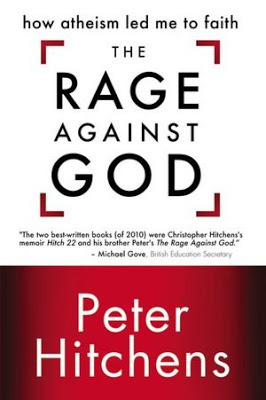I’ve been wanting to read The Closing of the Muslim Mind by Robert Reilly for some time after hearing about it on Dennis Prager’s radio show. It promised to explain the mindset of the Muslim world in way that would make sense of what we see coming from that part of the world.
It certainly delivered!
This book is extremely comprehensive in its scope and history of Muslim thinking. It traces the roots of Islamic philosophy (specifically Sunni Islam) back to the 9th - 12th centuries. At the time that Islam came in contact with Hellenistic reasoning and thought, a decisions had to be made. Should Islam accept the rationalist thought processes introduced by the Greeks, or should they rely solely on the revelation provided by the Koran.
The rationalist school, the Mu’tazilites, lost and the revelation-only school, led by al-Ghazali and the Ash’arites, won. The implications are staggering.
“The Mu’tazilites differed from their opponents in their teaching that God has endowed man with reason specifically so that he can come to know the moral order in creation and its Creator; that is what reason is for. Reason is central to man’s relationship to God.” This position implied a dangerous ability of man to determine right from wrong on his own. Some Muslims began to question the Mu’tazilites for attempting to make themselves somehow equal to God.
In their opposition to what they believed to be a dangerous heresy, the Ash’arites went in the exact opposite direction. “The autonomy of reason was anathema to them. Revelation was primary and supreme. In Ash’arism, as we shall see, the primacy of revelation over reason rises from the very nature of what is revealed: God as pure will and power.” However, this philosophy posits an irrational god that cannot be known. If God is pure will, He can will whatever He wants from day to day. In fact, the Ash’arites only believe God appears to be consistent because He acts out of habit. Man has no free will for to make our own decisions would be to negate the power of their god. And, as He is also pure power, might makes right in the very literal sense. There is no other way to change the culture and the people because rationality has been discarded.
This very disorienting worldview, in its logical end, states that reality is an illusion. Because EVERYTHING happens as a result of god’s will, nothing else causes anything. So if I pick up a glass, I did not cause the glass to rise or even my hand to move. In fact, the atoms and molecules were rearranged by god at each millisecond and it only appears to have been caused by me. Similarly, if I shoot someone in the head, and they die, it was not I that killed them, but god. Had he wanted them to live, he would not have moved the bullet in such a way as to kill. He could also keep a headless person alive if he so wished. It is only the “habit” of Allah that leads to the death of a beheaded person.
In this bizarro world, no real learning can take place. We can know nothing and to presume that we can is to usurp god and his ability to change the “facts” at any time. Obviously a worldview that eschews rationality and reality itself cannot survive for long in any kind of successful way. Is it any wonder that majority-Muslim nations are such basket cases?
Today, the Muslims have no desire to modernize and join in the post-enlightened world. Rather, they seek to destroy rationality in the world at large in the same way they have stifled it their nations. This can only be done through violence as power is what determines right. As we think of how to affect the Muslim world in a positive way, Reilly states, “The Middle East is poor because of a dysfunctional culture based upon a deformed theology...” It cannot be modernized or introduced to rational thought until its entire worldview ceases to exist.
A world based on the lack of reason and reality is a world constructed in the very pit of hell. Who else but an evil mind could conceive of so damaging a theology. Muslims cannot know their god, nor can he love them. Both would be heretical notions of equality with their god. I’m so glad we have a God that says, “Come, let us reason together.” “For God so loved the world...” Is there hope for the Muslim world. Not much...
The differences produced in society by belief in these two very different Gods could not be more sharp.



